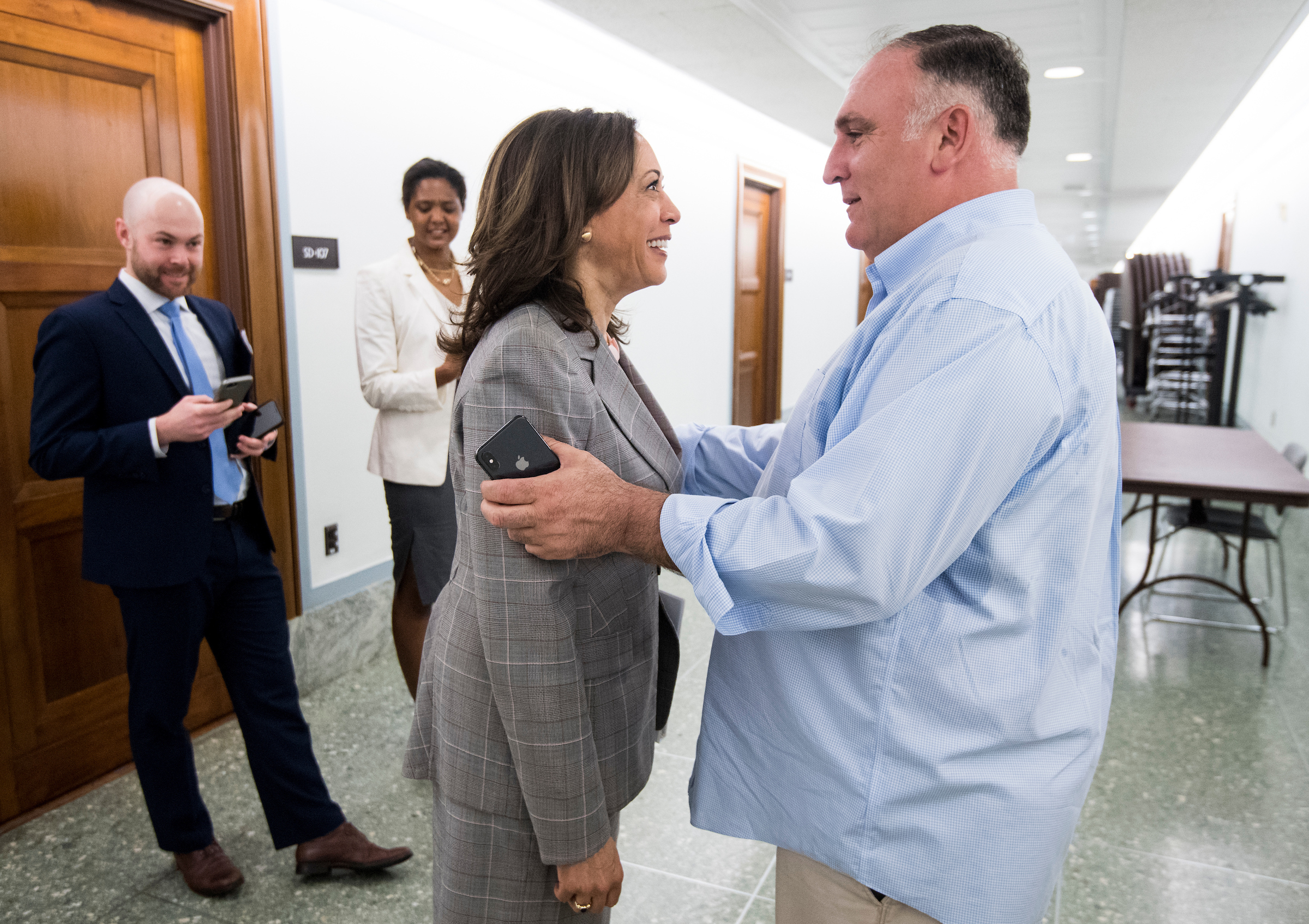Senate passes long-stalled disaster aid bill with Trump support
Negotiators agreed to revisit stripped border-related funding after the Memorial Day recess

After months of negotiations, Congress and the White House on Thursday reached agreement on a $19.1 billion disaster aid bill that will help communities recover from a series of deadly storms and wildfires.
The draft bill does not include the border-related funding for migrants at the southern border sought by the Trump administration, the last hurdle that had been preventing a deal on the package.
[Senate to take one last shot at disaster, border aid bill]
The Senate voted 85-8 Thursday afternoon to send the bill to the House, where Democrats are expected to try to pass the legislation by unanimous consent on Friday, according to a House Democratic aide. House Republicans did not respond to requests for comment about whether they would object to passing the bill without a roll call vote.
Negotiators agreed to revisit the humanitarian aid issue after the weeklong Memorial Day recess.
“We’re going to try to push that separately when we come back,” Senate Appropriations Chairman Richard C. Shelby, R-Ala., said after a closed-door GOP lunch. “It’s needed, but we’re sticking with disaster for now. That’s the way to pass the bill. It’s been months.”
Trump said he supported the bill. “We’re going to get the immigration funds later,” he said.
The package would provide more than $4.6 billion to reimburse farmers for lost crops and livestock and help rural communities rebuild after various floods, storms and other disasters. There’s also $3.25 billion for Army Corps of Engineers flood control and storm damage reduction projects, and $3.17 billion to help rebuild military bases devastated by Hurricane Michael and other events.
[Republicans reviewing Democrats’ latest disaster aid offer]
The legislation includes $600 million in nutrition assistance to Puerto Rico to help restore funding that ran dry in March. It also includes $304 million in Community Development Block Grants for the island territory to help it meet federal cost-share requirements, part of a broader appropriation of $2.4 billion for the block grant program to help rebuild after disasters dating back to 2017.
The measure would also require the Department of Housing and Urban Development to publish requirements for CDBG disaster mitigation funds appropriated more than a year ago within 90 days.
Some provisions aren’t directly related to recent natural disasters. The proposal includes a provision sought by Senate Majority Leader Mitch McConnell, R-Ky., that would extend crop insurance to hemp farmers, as well as language sought by Washington state cherry growers and others that would waive income limits to qualify for trade-related assistance. It also includes an extension of the National Flood Insurance Program through Sept. 30, 2019.
Flurry of activity
The agreement followed a fast-paced few hours of negotiations, which included Senate Appropriations Committee ranking member Patrick J. Leahy, D-Vt., suggesting to Shelby on Wednesday evening that the humanitarian aid portion of the package be removed, in order to allow lawmakers to pass the bill.
Senate Minority Leader Charles E. Schumer, D-N.Y., took to the Senate floor Thursday morning to voice his support for that plan — should negotiators not be able to work out their differences on immigration provisions within the humanitarian aid section of the bill.
“I understand that there are some discussions going on in the House, but if we can’t come to an agreement this morning on the other extraneous issues that the House is discussing, we should set those issues to the side,” Schumer said. “We should pass disaster aid as is and return to those unrelated issues at a later date.”
Shelby told reporters just minutes later that he also supported lawmakers advancing a stand-alone disaster aid bill.
“I’ve said always the more we put on an appropriations bill that has not to do with the subject matter, like disaster … it loads it up and it impedes progress,” Shelby said. “A lot of it is good and a lot of it is not. But take it all out and try to stay with disaster. I’m up for that.”
Following a phone call where Shelby and Georgia Republican Sen. David Perdue spoke with the president, the Senate GOP conference was filled in during a closed-door lunch.
Senate leaders earlier Thursday urged negotiators to stay at the table and teed up an afternoon procedural vote as a backup plan.
“I implore our counterparts in the House and my colleagues in this chamber to quickly resolve the last few issues and produce a compromise legislation today,” McConnell said on the floor. “They need to do this today. Because one way or another the Senate is not leaving without taking action.”
Proposals shopped late Wednesday didn’t result in a deal on the border provisions, a House Democratic aide said Thursday. House and Senate leaders have been working overtime to complete negotiations on a package that would speed repairs from 2018 and 2019 storms, along with supplying additional fiscal 2019 funding requested by the White House related to the border surge.
Prospects had dimmed Wednesday night after late-breaking negotiations didn’t resolve issues related to oversight provisions sought by House Democrats that would control how funds are spent for humanitarian aid through Health and Human Services and border security through Homeland Security.
Paul M. Krawzak contributed to this report.





